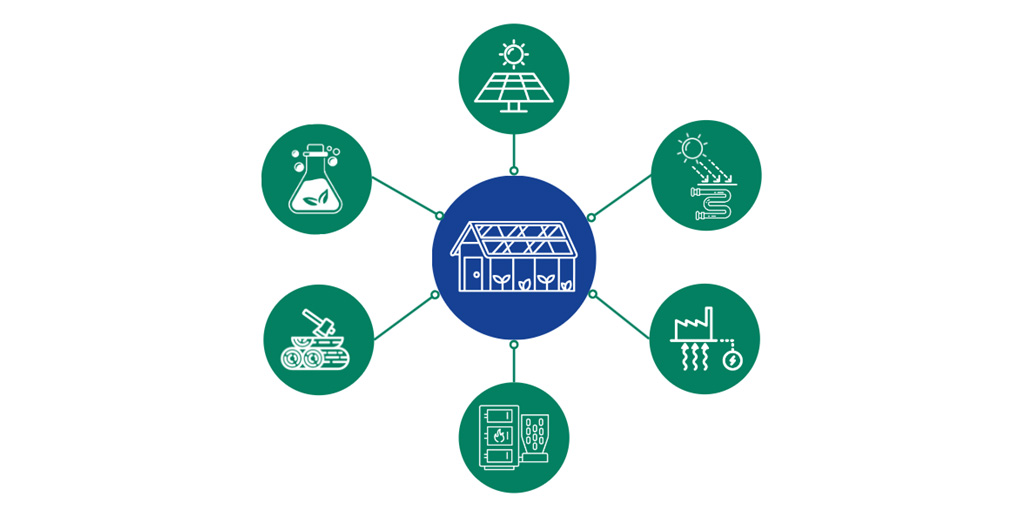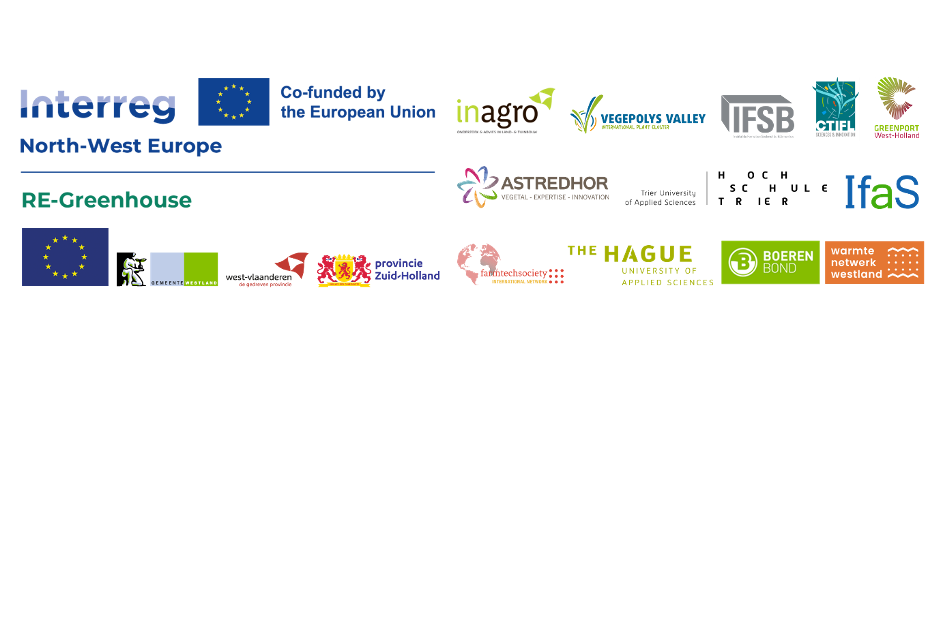RE-Greenhouse initiates renewable energy shift in NWE greenhouses
2 May 2024
With the introduction of RE-Greenhouse, the aim is to accelerate the transition to renewable energy in the greenhouse sector.

North-West Europe, renowned for having the highest density of heated greenhouses in produce and ornamentals, predominantly relies on fossil fuels as the main energy source, constituting the second-largest production cost. With the introduction of RE-Greenhouse, an Interreg North-West Europe project, the aim is to accelerate the transition to renewable energy in the greenhouse sector for climate resilience, food security, and enhanced competitiveness. The Hague University of Applied Sciences will be part of the project for the next couple of years.
Bringing together 11 partners from 5 NWE countries (BE, FR, DE, LU, NL), each specializing in specific renewable energy sources, RE-Greenhouse addresses the untapped potential that lies behind borders. The Hague University of Applied Sciences is one of the project's partners. With a commitment to accelerating the adoption of renewable energy in greenhouses, the project initiates cross-border actions and expertise exchange.
Key Project Initiatives
- Pilot Set-ups for promising renewable technologies:
The project establishes pilot sites in four countries—Belgium, France, Luxembourg, and the Netherlands—implementing six renewable energy technologies: solar energy, heat network, residual heat, pellet heating system, wood heating system and biogas. These pilots, coupled with stakeholder consultations and historical data, inform the development of a comprehensive decision tool. - Transnational Measurement Plan and Transfer System:
A transnational metrix plan and transfer system for operational greenhouse data will be implemented, offering insights into energy flow, consumption, production, and storage of renewable energy sources. - On-site Demonstration Visits:
Organizing on-site visits to the pilot setups, the project aims to inform, inspire, and stimulate greenhouse holders and stakeholders, fostering the transition to renewable energy sources. - Greenhouse Renewable Energy Source Decision Tool:
The innovative open decision tool, a potential gamechanger for greenhouse holders, will determine the most suitable and opportune renewable energy sources based on technical and economical factors. Its widespread adoption is planned in Belgium, Germany, France, Luxembourg, and the Netherlands through a greenhouse holders international open call and targeted stakeholders training. - Long-term Impact:
By transitioning to renewable energy sources, greenhouse holders enhance their resilience to geopolitical shocks, ensuring a systemic shift toward sustainable and environmentally friendly regional practices. This shift contributes to food security, regional employment, and increased competitiveness in the global market for sustainable agricultural products.
About RE-Greenhouse
The RE-Greenhouse project, coordinated by Inagro and supported by a €2.3 million grant from the Interreg North-West Europe programme, aims to accelerate the transition from fossil fuels to renewable energy production in NWE greenhouses. The consortium includes 11 partners ( including The Hague University of Applied Sciences) from Belgium, France, Luxembourg, and the Netherlands.
For more information:
Pauline de Jong: [email protected]
